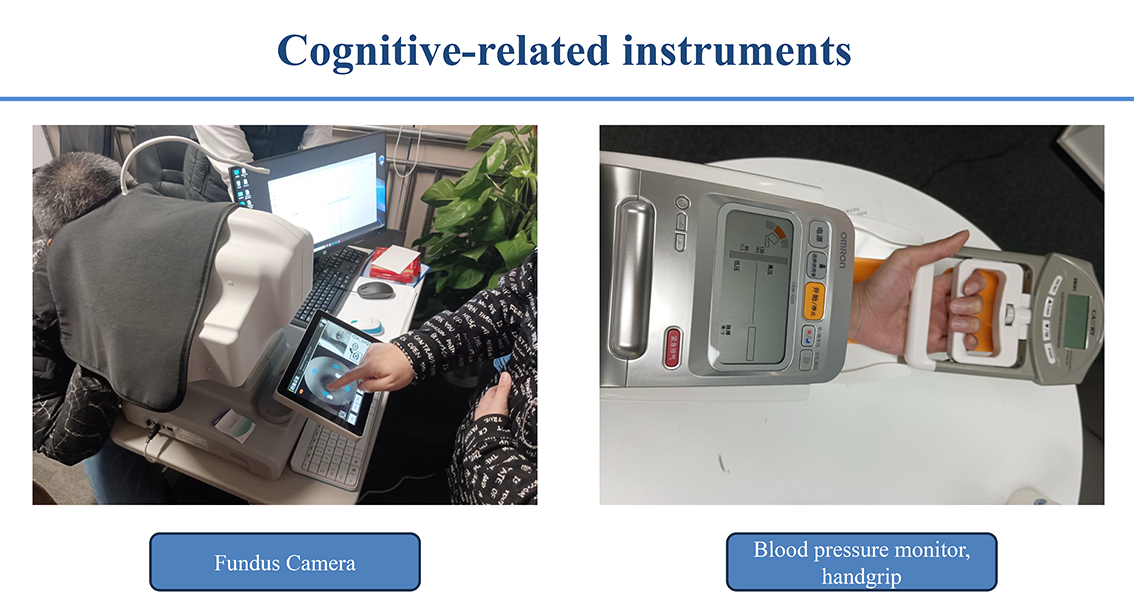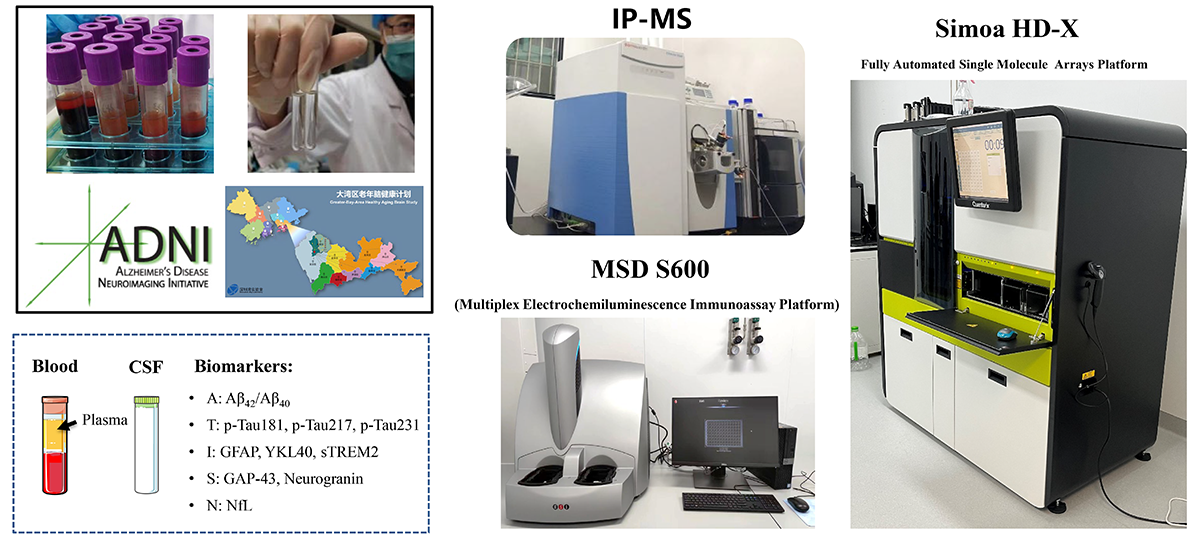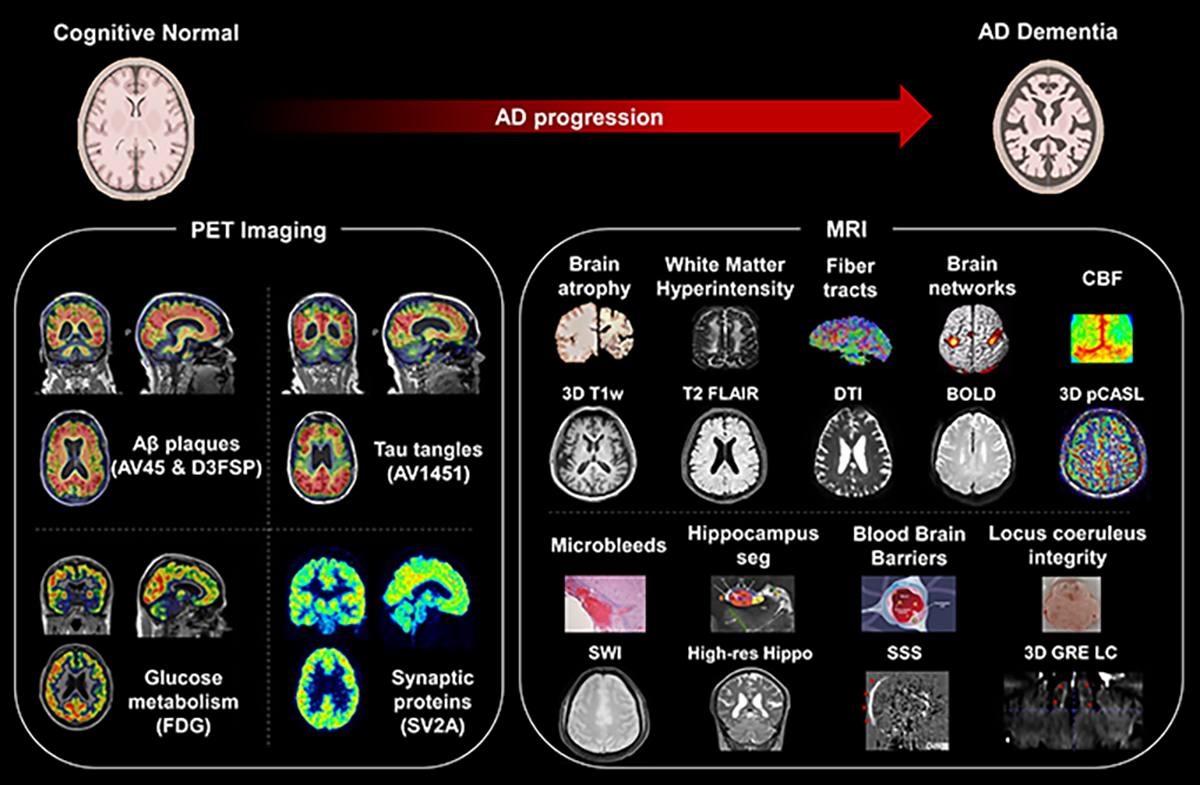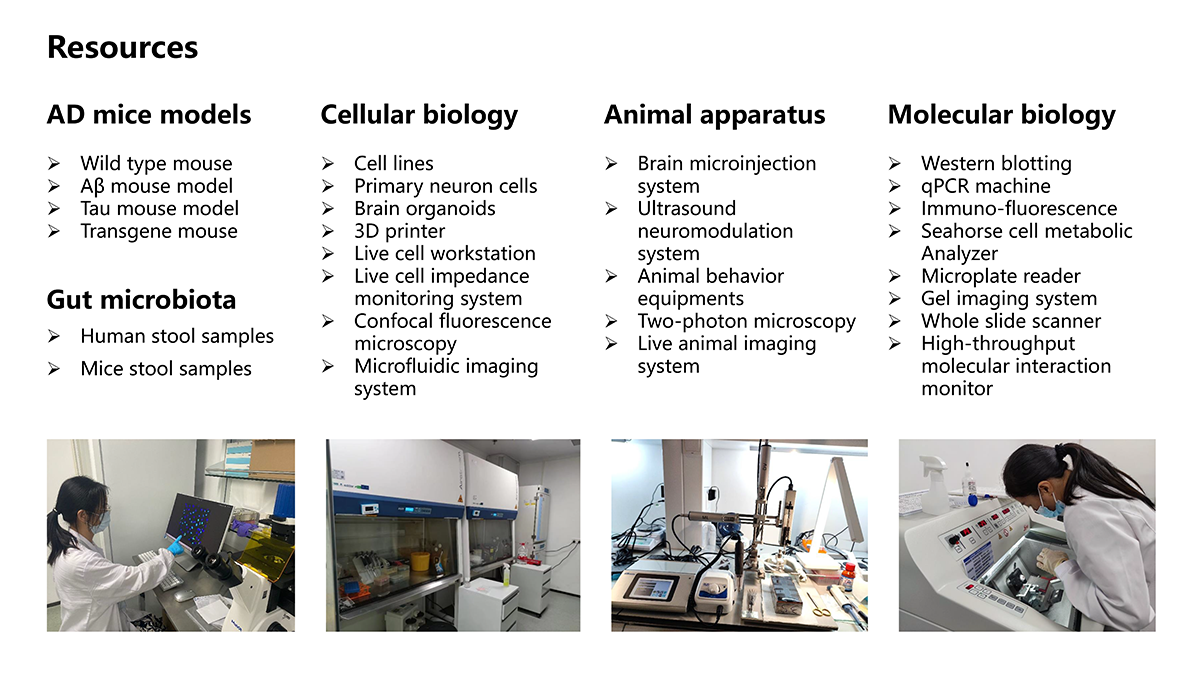
Here, you can learn and practice the assessment of various neuropsychological cognitive scales. Additionally, we have retinal imaging equipment available for collecting eye-tracking data and imaging of ocular blood vessels. This enables researchers to investigate the relationship between ocular blood flow and cognitive decline in the elderly. Other than that, we also welcome your interest in cognitive impairment and psychiatric disorders to join us in exploring the cognitive functional evolution process of Alzheimer's disease. We aim to combine it with diverse modalities of pathological data to uncover more intriguing mechanisms underlying the disease.

We mainly investigate the temporal evolution and underlying mechanism of blood/CSF biomarkers in the course of AD by using the ADNI and GHABS cohorts, intending to raise the early diagnosis, tracking, and prediction of clinical AD. In our lab, you will study the latest AD research, and systematically learn how to process and detect clinical biological samples such as cerebrospinal fluid/blood. Furthermore, you will learn how to design and complete clinical biomarker projects and master the detection methods of AD-related risk genes and biomarkers. At the same time, you will learn how to develop the protocols of new biomarkers using SIMOA and MSD platforms.

We possess cutting-edge international molecular imaging data, including:
Aβ PET: Accumulating over 2000+ Aβ PET molecular imaging data, with both AV45 and D3FSP probes.
Tau PET: Accumulating over 1000+ AV1451 PET imaging data.
FDG PET: Accumulating over 1000+ FDG PET molecular imaging data.
SV2A: Our team plans to conduct SV2A PET imaging, which measures synaptic proteins in vivo.
3D T1-weighted structural images: Fine brain tissue segmentation using FreeSurfer.
3D T2 FLAIR: White matter hyperintensity (WMH) segmentation based on U-Net neural networks.
Arterial Spin Labeling (3D pCASL): Quantitative assessment of whole-brain cerebral blood flow (CBF).
Resting-state functional Magnetic Resonance Imaging (fMRI): High-resolution BOLD images scanned for 10-min duration, capable of better evaluating brain function and network analysis.
......

Here you can learn:
Biology Skills: Cell culture, organoid culture, PCR, genotype identification, Western blot, immunohistochemistry, immunofluorescence, ultrasound neuromodulation, blood-brain barrier opening, animal behavior experiments, cell dynamic imaging, small animal fluorescence imaging, small animal PET imaging, etc.
Software Tool Proficiency: R Language, MATLAB, SolidWorks, Photoshop, Adobe Illustrator, GraphPad, etc.
Overall Research Training: interdisciplinary research training, literature review, experimental design and data collection, data statistics and analysis, image analysis and processing.